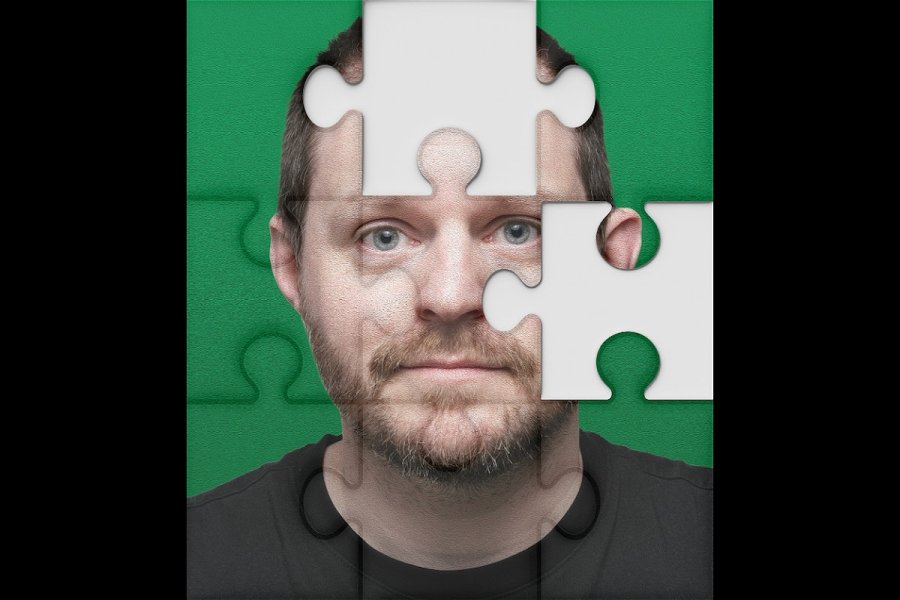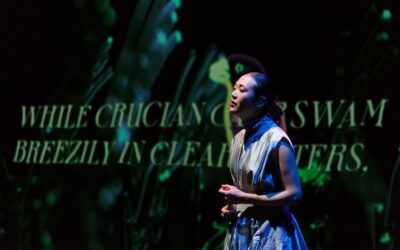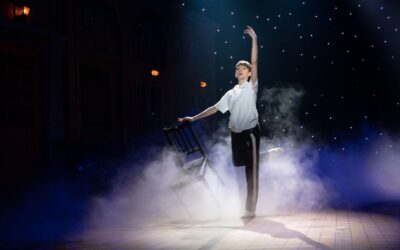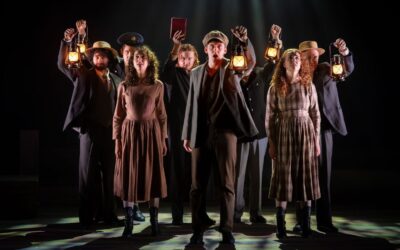By Chenoah Eljan
Dylan Cole enters the stage wearing head-to-toe black with his headphones on. Large, achromatic puzzle pieces are spread out on the floor. Piano music plays. Cole picks up a single puzzle piece, cradles it like a baby, sets it down. The puzzle piece is a metaphor for Cole himself as a baby. A twelve month old infant who craved solitude and silence, and hated being touched. A twelve month old infant who formed detailed memories he retained vividly into his 40s. Memories that included an understanding of the motivations and limitations and intentions of the adults around him. “My parents were not fit for office” Cole announces, the audience laughs. But it’s not funny, it’s a one hour trauma dump that should have come with a warning. By the sounds of it, Coles parents were terrible parents and he is a very sad adult as a result. The show is dark and heavy and there is no payoff for the audience in the end.
Cole has structured the show around the assembling of the giant jigsaw puzzle. It is regrettable that the audience can tell what the image will be ten minutes in, but nonetheless the structure is appreciated. Cole’s intention, his takeaway message, is that in this sad, shitty, lonely, too-loud world you just need to “take one day at a time”, or one puzzle piece at a time. But Cole only tells the audience this, he doesn’t show them. There is no self-awareness, no growth journey, no forgiveness or acceptance or reaching out to the audience in recognition that shitty childhoods are a dime a dozen. This is one man’s story with no attempt for connection, nod to a shared human experience, or acknowledgment of the universality of the desire for love and care and attention. For this reason, the show lacks resonance. The audience doesn’t know if they are meant to laugh when Cole says “A never ending bottle of wine and a jigsaw puzzle, that’s heaven” but by the time Cole arrives at “friends are over-rated” the audience is aware: this is no laughing matter. Cole would have been wise to avoid the attempts at humour such that they are, they feel out of balance and disingenuous. They don’t serve to lighten the mood. This show is sad and resentful and hurt and it would be better served by more depth than half-hearted attempts at levity.
Cole periodically takes breaks from his monologue to assemble his giant metaphor jigsaw puzzle. During these times he plays stunningly beautiful piano music. In these moments the sun shines through the clouds as beauty – however temporary – replaces the darkness. It is a fantastic choice and well executed.
Trauma and theatre are inextricably linked. It has no doubt been argued quite persuasively many a time that you cannot in fact have true art without true suffering. But suffering and art are not synonymous. Art is a communication, a connection, a learning. It is building an understanding or an appreciation or straight-up beauty from fragments of shrapnel and grime. Art evokes emotion, reflection or propulsion. Unfortunately, Lonely is all trauma and very little art.





